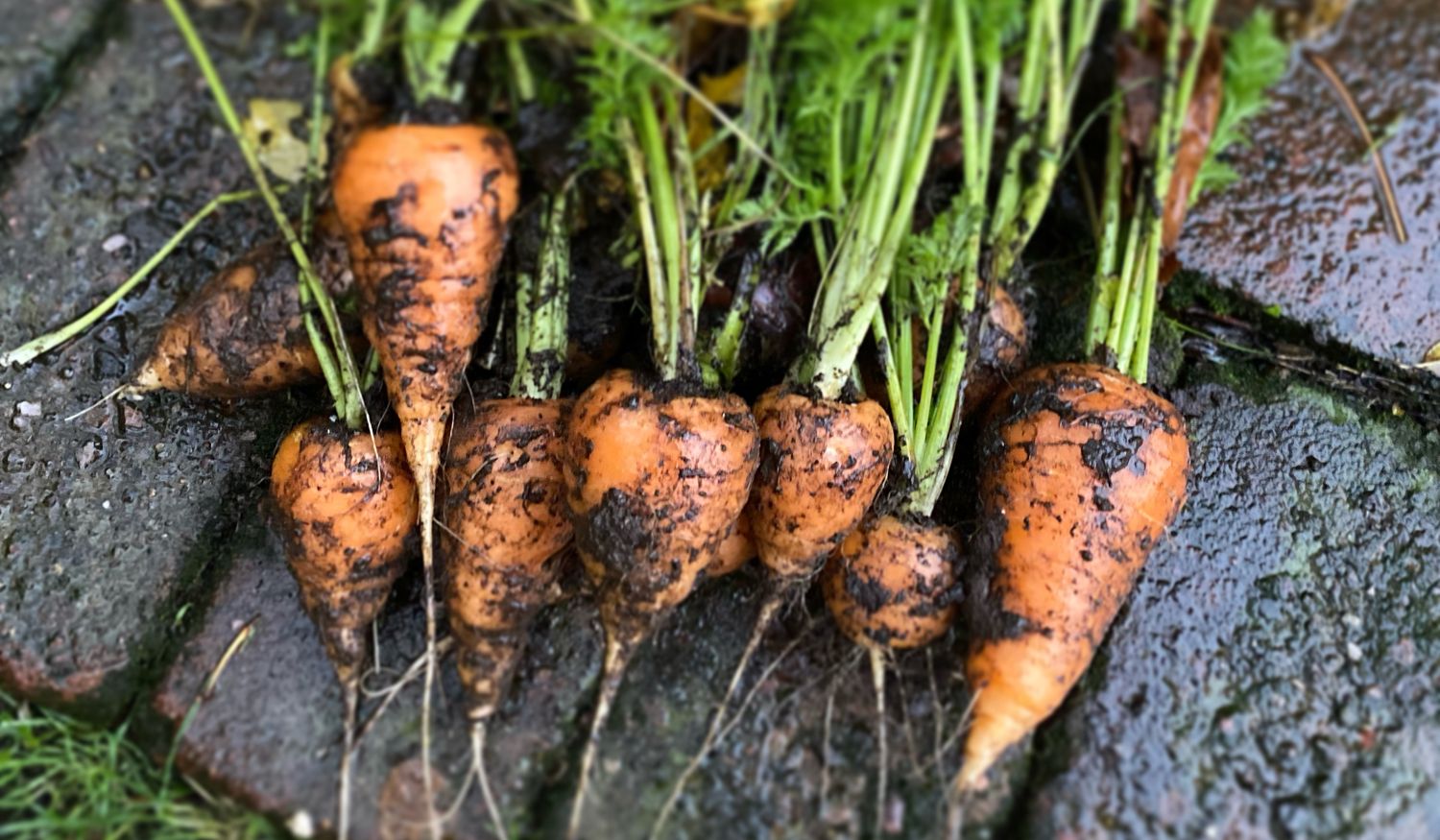You have to make a bold move if you’re going to change careers. You can research it, work things out and get all of your ducks in a row. Ultimately, it is always a bit of a risk and a leap of faith.
It happened in various stages for me but there is one moment that stands out. I was on a walk in the Ochil Hills with a couple of friends and we were talking about career changes. I was torn between options and had been for years. My career in communications had never felt like the right fit, and I was drawn to the environmental sector.
My friend asked what my favourite job had been to date. Without hesitation, I talked about my time working on a vineyard in Australia in my twenties. I reminisced about working hard outdoors, learning about the plants, observing the wildlife. He said, There’s your answer.
Not long after that, aged 35, I applied to study for an HNC in horticulture at Glasgow Clyde College.
A note for now
As I write this article, the Covid-19 pandemic and restrictions are ongoing. I remain optimistic and have included examples which you can get started on now and others which may be for a little further in the future.
Where to begin?
Keep in mind that there’s no one-size-fits-all approach! We each have our own unique set of circumstances and commitments. I’ve worked with people who chose different routes to me to make their change – from graphic designer turned gardener to ecologist turned gardener.
Horticulture is a wide field. There’s garden design, market gardening, seed production, botanic gardens, therapeutic horticulture, garden history, nursery production, orchards, topiary, kitchen gardening, teaching and so many more that I could fill a whole blog post naming them. My tip is to try things out and pay attention to where your passions fall along the way.
I’ll talk generally about some of the things that helped me to start on a journey to become a professional gardener. It took perseverance, but I am now in my third year as trainee assistant gardener at Little Sparta in Scotland.

Start growing
If you are thinking about gardening as a career, perhaps it is growing your own that has sparked your interest. If not, start growing now.
Do you have space on a balcony or windowsill? Do you have a garden or an allotment? Could you ask a friend or a family member for a patch in their garden?
Try growing edibles, ornamentals, herbs, succulents or alpines – whatever you can in the space you have. You can grow in pots and take them with you if you move. If you have no outdoor space, try growing herbs on a sunny windowsill or join the house plant trend!
Growing your own is a chance to work with plants and learn along the way.

Community gardening
When I first volunteered at a local greenspace, The Hidden Gardens in Glasgow, I had my own little garden but didn’t really have a clue what I was doing. While volunteering, I learned how to pot on seedlings, about mulching and composting, and garden wildlife. Inspired by the gardeners there, I started to think that gardening could be more than a hobby.
Is there a local community garden or community growing project that you can get involved with? The chat with the other volunteers and gardeners can be as fun as the gardening. You’ll learn some new things along the way.

Learn from others
There are a wealth of resources and people to learn from online to get you started, and I’ve noticed a lot more digital opportunities since the Covid pandemic. Look out for gardens hosting talks, tours or workshops online and horticultural experts sharing their skills with simple how-to videos.
I love to follow professional gardeners, growers and garden designers on social media for inspiration. A few of my favourites are @florencegardening and @Rekha.garden.kitchen on Instagram and Propagate Scotland on YouTube. Roots and All podcast never fails to inspire – a different specialist is interviewed in each episode and you’ll always learn something new.
Although these new digital connections are really valuable, they don’t replace the experience of visiting gardens or learning from professional gardeners in person. When it is possible, get out and visit a range of greenspaces and gardens. Start by exploring a nearby botanic garden or National Trust property and seek out wilder gardens. You’ll find different approaches in each.
Get qualified
If you want to go from being a home gardener to a professional gardener, consider studying for a qualification or look for a training scheme.
There are many routes to take here. I balanced part-time work with full-time studies for an HNC in Horticulture. If you can’t commit to something full-time at first there are other options like the Work and Retrain As a Gardener Scheme (WRAGS). It’s aimed at career changers! You work part-time (National Living Wage) and get practical training in a host garden for a year. Some WRAGS trainees will study for a Royal Horticultural Society (RHS) certificate on the side, while others will balance their training with other work and family commitments.
The RHS qualifications level 2 and 3 can be studied part-time online. The Royal Botanic Garden in Edinburgh (RBGE), for example, offers the RHS certificates online, and you can also do a RBGE certificate in practical horticulture in person.
Maybe you are in a place to throw yourself into retraining full-time. The National Trust for Scotland’s School of Heritage Gardening, the Historic Botanic Garden Training Programme, the MacRobert Trust in Aberdeenshire, RHS Wisley and the Royal Botanic Gardens, Kew all offer training opportunities. These are mostly full-time, paid training schemes, and some offer accommodation.
You’ll find many more options out there, including HNC to BSc studies. If you keep searching there will be an option that fits in with your life commitments and your learning style.

Take the leap
Horticulturalists have an important role to play in the environmental sector and beyond. Research backs up what we already know – gardening is good for us.
If we look specifically at the research into urban greenspaces, we see that they not only have the power to improve biodiversity and mitigate climate change, but they can also reduce health inequalities.
These factors certainly influenced me. Only you can decide if horticulture is the right career change for you. Go visit some gardens and greenspaces, try growing at home, get some practical experience and see where it goes.
Related articles
Thinking of getting into horticulture? Read more about how you can start your gardening career below!
Follow Lynne on Instagram - @brisgean

